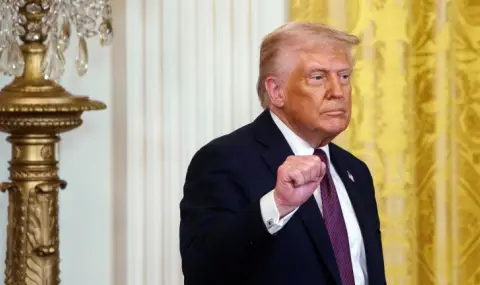The main stocks on the New York Stock Exchange fell more than 5% on Friday after China announced that it would impose additional tariffs of 34% on all products imported from the US, starting April 10.
In the past two days since the announcement of the introduction of new tariffs, the US stock market has lost $6.4 trillion, writes The Wall Street Journal.
US President Donald Trump expressed confidence that representatives of big business are not worried about the import duties introduced by his administration.
„Big business is not worried about tariffs because they know they are here to stay, but "is focused on a big deal that will significantly strengthen our economy. This is very important. It's happening right now," he wrote in Truth Social.
The world's poorest economies are at risk of being hit hardest by rising global trade tensions after the introduction of tariffs on imports from the United States, and Washington must reconsider the measures.
This is stated in a statement issued by the press service of the United Nations Conference on Trade and Development (UNCTAD).
The text states that the global trading system is entering a critical phase, as the world's largest economies are forced to announce large-scale new tariffs. It is noted that such a dynamic threatens "growth, investment and development progress, especially for the most vulnerable economies" in the world. According to the experts of the Conference, many low-income countries are now "in the worst possible situation, against the background of deteriorating external conditions, unsustainable debt and slowing domestic growth".
In this regard, UNCTAD called on world leaders to "urgently review the obligations imposed on vulnerable countries". According to the experts of the organization, almost 90% of the trade deficit falls on just 10 of the nearly 200 trading partners of the United States. At the same time, the introduction of American tariffs also affects the least developed countries and small island developing states, which account for only 1.6% and 0.4% of the deficit, respectively. The measures taken against them will not help Washington "neither to balance the trade deficit nor to generate significant revenues", the statement said.
On April 2, Trump announced the introduction of tariffs on goods from 185 countries and territories. The universal 10% tariffs will take effect on April 5, individual tariffs on April 9. In addition, the US administration has imposed a 25% tariff on all imported cars from April 3. Trump has declared a national emergency due to the economic situation.
